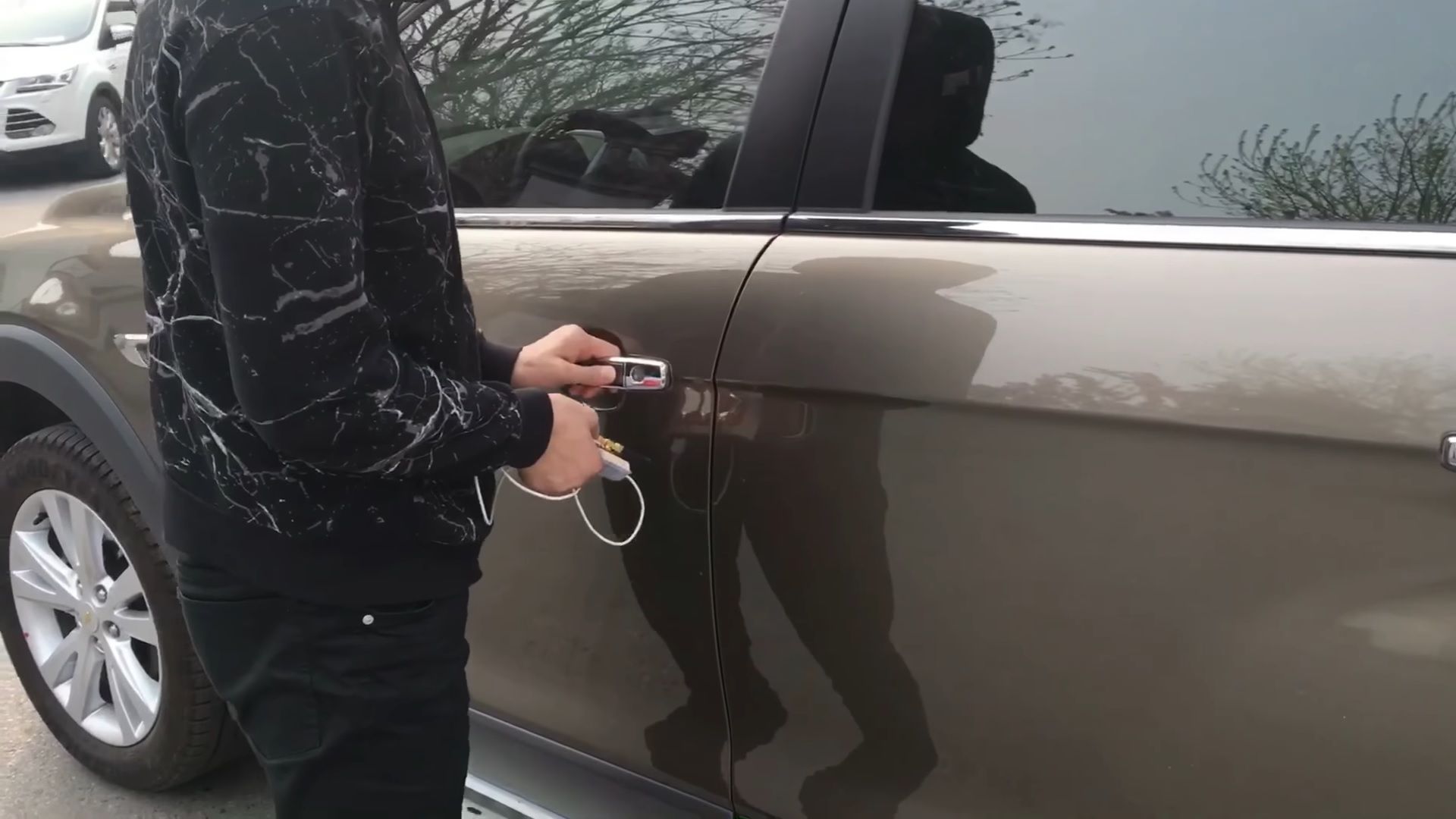So, your brand-new car is supposed to have the best anti-theft system available, right? You’ve got a key fob that allows you to unlock the car and start it without using a key. It’s supposed to be secure, but a Chinese security firm known as Qihoo 360, has proven that the technology isn’t as safe as we have all been led to believe. To put it simply, a pair of radio transmitters that cost all of $22 to make, is enough for a thief – with the help of a friend – to steal your brand-new car. Seems pretty wild, right? It’s actually so simple that it has taken this long for this hack to be figured out.
To put it simply, this hack extends the range of your key fob, allowing someone to open the doors and start the engine from much greater distances. One person (we’ll call him thief No. 1) comes within close range of you, an unsuspecting car owner, another person (thief No. 2) makes his move on your car. Once thief No. 1 is within close enough range that he can pick up the signal from your key fob, that signal is received by his transmitter and relayed to the receiver held by thief No. 2. By the time you come out of the store, your brand new car or SUV is on its way to a chop shop, and you’re left with one hell of a headache to go with a long walk home.
Keep reading for the rest of the story
This Doesn’t Affect U.S. Cars…. Or Does It?
In fairness, Qihoo 360 tested this hack on two cars from the Chinese market – the Qing hybrid and the Chevy Captiva. You probably haven’t seen either of these models here in the States. The Captiva was basically a Saturn Vue with a few updates, but for a short period, the Captiva Sport did float around as a fleet car here in the U.S. So, this might lead you to believe that you have nothing to worry about, but that isn’t necessarily the case. See, the company that makes the keyless entry systems for the aforementioned models is a Dutch company known as NXP. And, as luck would have it, its keyless entry systems are reportedly used in a lot of new cars here in the U.S. We tried to reach out to NXP to see just what Manufacturers it does business with, but so far we haven’t heard a response. For now, your best bet is to pay attention to your surroundings and watch out for people that get uncomfortably close to you. You can see how the hack works, or could potentially go down, in the short video below.


